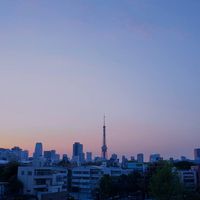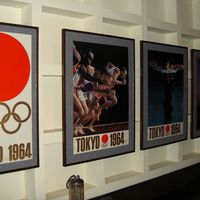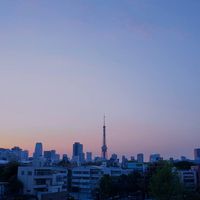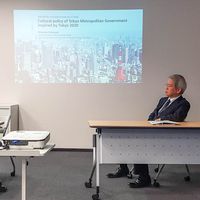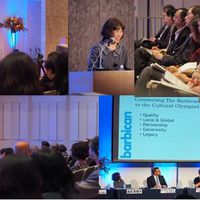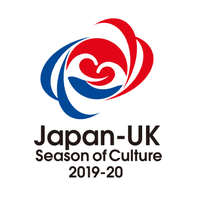#Tokyo2020: Japan's Cultural Initiatives for the Olympics
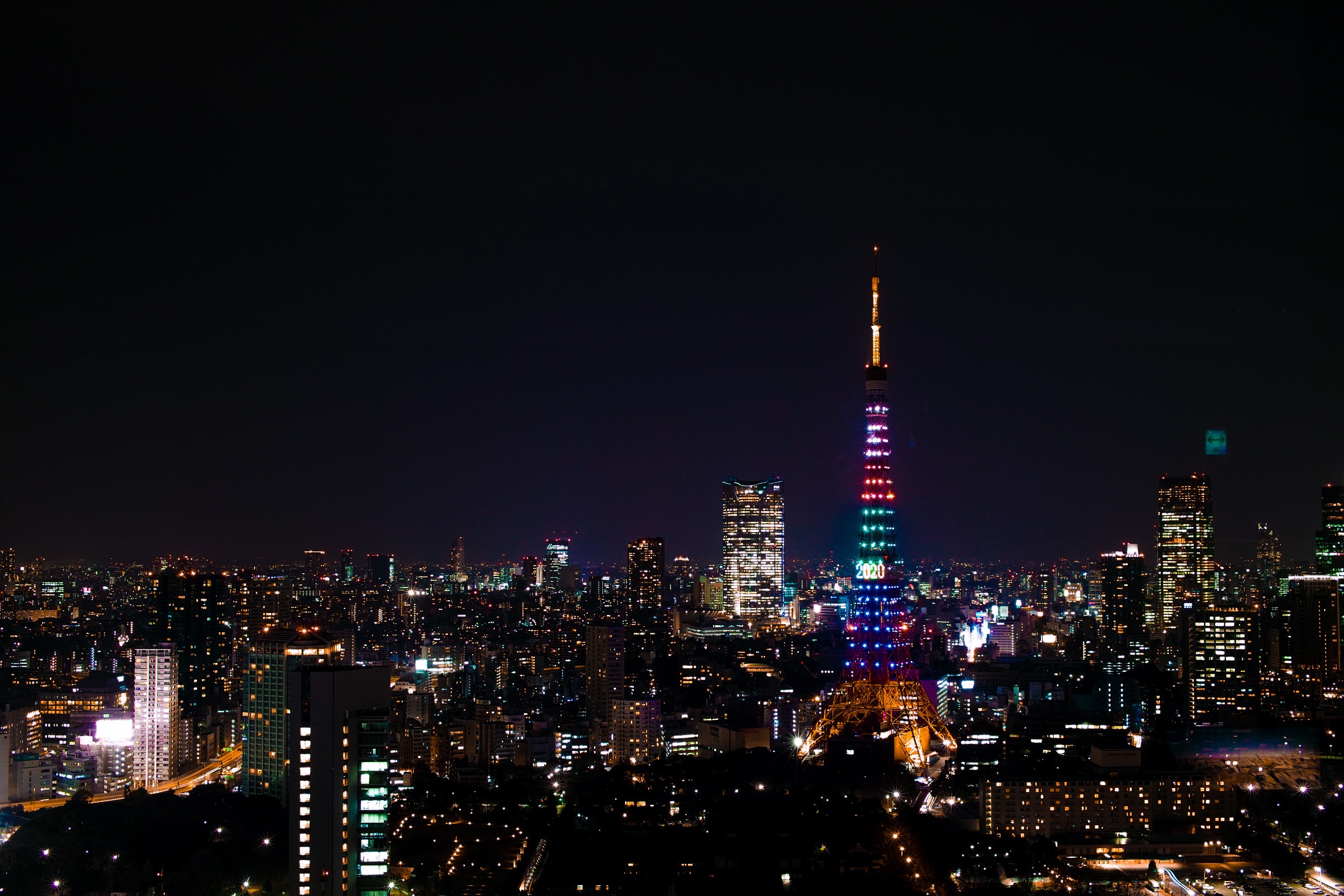
Title image 'Night View with Tokyo Tower Special Lightup <Invitation for 2020 Olympic Games (Shibakouen, Tokyo, Japan)' by t-mizo is licensed under CC BY 2.0
Amidst millions of ecstatic onlookers, the closing ceremony of the 2016 Summer Paralympics, held in Rio de Janeiro, marked the symbolic beginning of the Tokyo 2020 Cultural Olympiad, with the passing of the Paralympic flag from the Mayor of Rio de Janeiro, Eduardo Paes, to the Governor of Tokyo, Yuriko Koike.
The Tokyo Organising Committee of the Olympic and Paralympic Games (hereinafter, ‘the Organising Committee’), in collaboration with the Government of Japan, the Tokyo Metropolitan Government (TMG), local governments of other regions, and various other sectors, are carrying out numerous cultural programs in the lead to the Olympic and Paralympics Games of 2020.
In the words of the Organising Committee, the aim of the Tokyo 2020 Cultural Olympiad is to “enrich the culture of every region of Japan, encouraging the youth of the nation to participate in the various programs in the build-up toward the Tokyo 2020 Games, and to pass on the culture of Japan and the world to the future ahead of 2020 by promoting their participation and inspiring their creativity.”
Prior to the kick-off event of the Cultural Olympiad that took place on the 7th of October, 2016, the Organising Committee launched the Tokyo 2020 Authorization Programme, which has received and authorised nearly 2,500 projects from all over Japan, to be integrated into the Culture category of the Official Programme (as of January 2019). As Culture represents one of the eight action fields of the Official Programme, the Organising Committee has put significant efforts into realising an impressive scale of projects pertaining to the sector.
One such important initiative undertaken by the Organising Committee is the Tokyo 2020 Nippon Festival, which is scheduled to take place between the months of April and September 2020. The festival will be a nation-wide event, organised in close collaboration with the Government of Japan, local city governments and cultural organizations, and will focus on disseminating the power of Japanese culture and art within Japan, and across the world. Upon its inauguration, the festival hopes to share the global attention that Japan would attract, after commencing the Olympic torch relay.
The Organising Committee plans to host its programs around four pivotal themes: the first, to celebrate the start of the Games, and to bind the performing arts and other intangible cultural heritage from the West and the East together; the second, to communicate with a global audience through the voice of Japanese culture, and promote a sense of unity amongst the international community; the third, to elevate inclusivity in the society by creating community art projects which actively engage and involve people with disabilities, people from the LGBT community, and those from all other under-represented sections of the society; and the fourth, to provide a multifaceted support system to the reconstruction activities by the disaster-affected communities in the Tohoku region.
The Government of Japan, for its part, started the “Beyond2020”program in 2017, with a vision of corroborating a diverse assortment of cultural initiatives and giving a visual identity to these programs, enabling them to utilise the full potential of the rich and diverse regional cultures of the country, so as to lead to the creation of a legacy that the future generations can be proud of. The "Beyond2020" program targets projects or activities conducted by public institutions, private enterprises, and other voluntary organizations, and has authenticated 8,593 projects since its inception in 2017, until the end of 2018.
TMG, along with the Tokyo Metropolitan Foundation for History and Culture and the Tokyo Metropolitan Symphony Orchestra, has rolled out the Tokyo Tokyo Festival (TTF) project, which, as a precursor to the Games, will continue to generate excitement in the cultural sphere surrounding Tokyo. The primary objectives of the cultural programs led by TMG are to introduce Tokyo’s culture with originality and diversity, including the coexistence of tradition and modernity; to proactively promote international artistic/cultural exchanges globally, to generate opportunities for participation and exchanges among all people including the disabled, the elderly, children, and people from other countries in order to encourage artistic/cultural activities with new concepts and develop human resources for the next generation; and to generate a city-wide festive mood through the combined effort and the cooperation of the Government of Japan, local authorities, and artistic/cultural groups, among others.
The Public Call for the project proposals of TTF is seeking a wide range of ideas from the public, with the aim of creating a memorable program that will transform Tokyo into a more creative and cultural city by 2020, the impact of which would be felt, long after the conclusion of the Games.
2,436 project entries, not just limited to Japan, but also representing 28 other countries, were received by TTF so far, of which 13 projects were selected, and will be implemented between the autumn of 2019 and September 2020 as the centre-pieces of TTF. To carry out more such projects delivered by cultural/artistic organizations, private institutions and corporates programs ahead of 2020, and under TTF, Arts Council Tokyo also initiated the Tokyo Tokyo FESTIVAL Grant Program.
Having found themes with a common link across their initiatives, which reflect upon Inbound Policy, Diversity, and Technology and Tradition, the Organising Committee, the Government of Japan, and TMG (along with the Tokyo Metropolitan Foundation for History and Culture) are developing this ambitious array of events and programs, hoping to create a legacy that will last well beyond 2020.
--
This article is published as a leadup to ASEF Unplugged - Yokohama, titled 'Beyond #Tokyo2020: What is the way forward for Japan's cultural cooperation?'
For this 6th edition of ASEF Unplugged in Yokohama, Japan, the Asia-Europe Foundation (ASEF) invites you to an afternoon of conversations surrounding the following questions: How can these cultural initiatives be sustained after #Tokyo2020? How will Japan continue cultural cooperation beyond Tokyo, beyond Japan, and beyond Asia? What is the government's role in ensuring that the investment made during the years in the lead up to the Games is sustained long after #Tokyo2020 is over?
ASEF Unplugged is a new event series of the Asia-Europe Foundation focusing on informal peer-to-peer conversations on arts, culture and heritage. It responds to the growing demand from conference audiences for more interactive formats that allow for greater engagement of participants beyond being mere receivers of information.
ASEF is publicly funded by over 50 partner countries of the Asia-Europe Meeting (ASEM), an informal political dialogue process. Japan is an ASEM partner country.
Written by: Yuko Ishiwata, Olympic and Paralympic Culture Strategy Director, Arts Council Tokyo
Edited by: Pravali Vangeti
About the author:
Yuko Ishiwata has served as the Program Director of Arts Council Tokyo since the organization's establishment in 2012. Before joining Arts Council Tokyo, she was active in cultural policy making, culture promotion programs of local governments. Also, she used to work in an advertising agency, managing market trend analysis, marketing and consumer insight, and estimating advertisement budgets of Japanese companies. She is currently in charge of the Tokyo Cultural Program in the Run-up to 2020.
Similar content
deadline
31 Aug 2019
By Kerrine Goh
26 Feb 2019
deadline
30 Sep 2018
03 Dec 2018
deadline
31 Jan 2019

